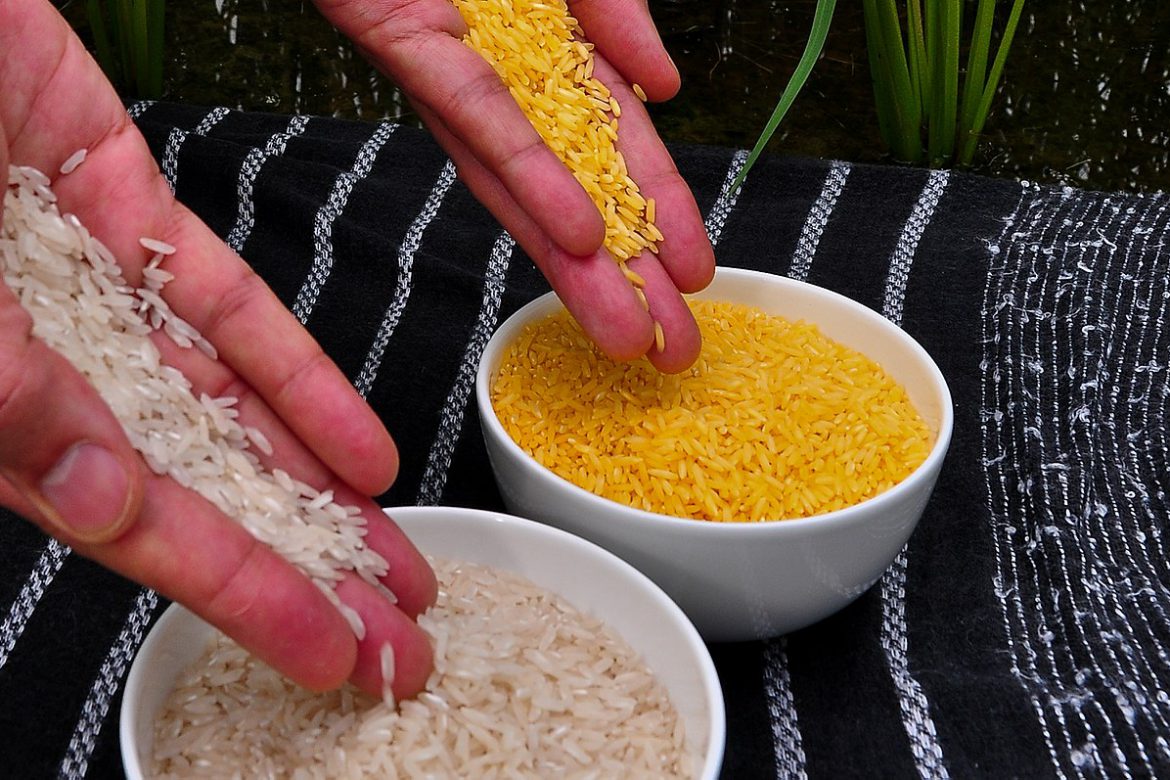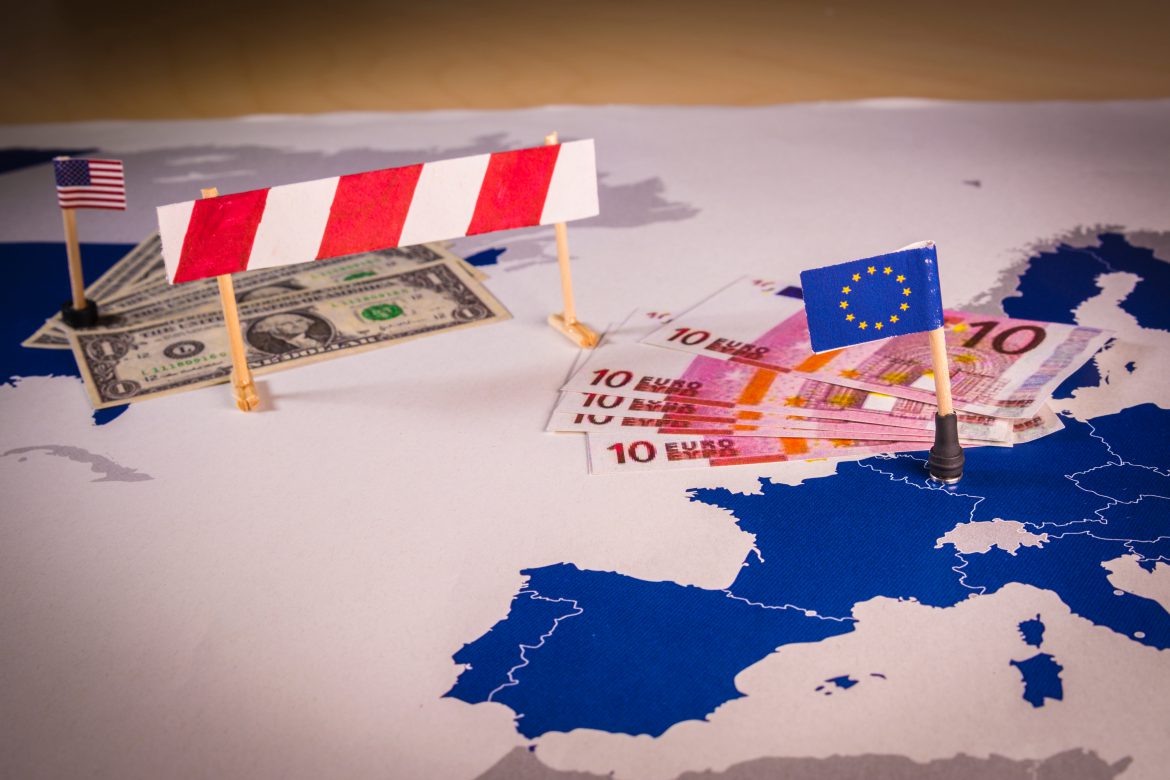Within the next 30 days, the European Union wants to respond to new US tariffs on steel and aluminum, which were imposed by the Trump administration. After an initial exemption, the president now seems to be more determined to follow through with his attempt to “protect American industries.” With a trade war seemingly about to begin, let’s throw light on who started it in the first place.
The EU’s Retaliation
Through a 25 percent tariff on steel and a 10 percent tariff on aluminum, President Trump intends to shield American producers from foreign competition and keep jobs inside the United States. This is in line with Trump’s general tendency towards economic protectionism, demonstrated by his support for tariffs on the Canadian manufacturer Bombardier’s C-series jets (planes which are partially produced in the UK as well) and for tariffs on imported solar panels and washing machines.
The European Union recently announced its retaliation against those import duties. It has launched legal proceedings against the measure and plans on additional taxes on American imports in Europe, including things like clothing, motor vehicles, orange juice, or cigarettes.
It is certainly strange the European Union doesn’t manage to rise above the mercantilism of Donald Trump. Before his election, and during his first months in office, European politicians made positive signals for free trade. Where Trump wanted less free trade, Europe responded with more economic cooperation. Back in July 2017, we saw headlines like “EU, Japan seal free trade deal in signal to Trump.”
“Although some are saying that the time of isolationism and disintegration is coming again, we are demonstrating that this is not the case,” European Council President Donald Tusk said during a press conference with Japanese Prime Minister Shinzo Abe.
In a follow-up speech, however, EU Commission president Jean-Claude Juncker completely overturned this return to economic principles and to the moral high ground. In a now legendary quote, Juncker said in a speech in Hamburg, Germany:
So now we will also impose import tariffs. This is basically a stupid process, the fact that we have to do this. But we have to do it. We will now impose tariffs on motorcycles, Harley Davidson, on blue jeans, Levis, on Bourbon. We can also do stupid. We also have to be this stupid.
The episode ended with Trump granting an exemption to the European Union. That deadline has now expired, with no deal having been reached. In Brussels, lawmakers are up in arms about the measures, while Washington does not seem to see this as a priority.
Even Donald Trump seems unimpressed by threats coming from the EU. Unlike last time, we weren’t showered in tweets about German cars, but we did get a standard exclamation by the president, which was probably a reaction to the EU’s decision to launch an appeal at the World Trade Organization (WTO):

The EU Started the Trade War
The general media narrative is that the European Union is now forced to “respond” to a trade war initiated by the United States. But is Donald Trump right about the fact that American products get treated unfairly in Europe? The answer is: yes, absolutely.
Here are the tariff rates imposed on Europe by the United States on a number of goods (numbers taken from the United States International Trade Commission):
- New Diesel car: 2.5 percent
- T-shirt: 16.5 percent
- Umbrella: Tariff-free
- Olive oil: 5 cents/kilogram ($5/100 kg)
- Biscuits: Tariff-free
- Regular cigarettes: $1.05/kg + 2.3 percent
- Orange juice: 7.85 cents/liter
- Sugarcane: $1.24/ton
Here are the tariff rates imposed by the European Union on a number of goods (numbers taken from the European Commission):
-
- New Diesel car: 16 percent
- T-shirt: 8 percent
- Umbrella: 4.7 percent
- Olive oil: €134/100 kg ($156/100 kg)
- Biscuits: 9 percent EA (additional “agricultural component” duty), 24.2 percent ADSZ (additional duty on sugar contents)
- Regular cigarettes: 57.6 percent
Orange juice: 12.2 percent
- Sugarcane: €4.6/100 kg ($5.37/100 kg, $53.7/ton)
Just on a random selection, it turns out that the European Union is already heavily taxing imports from the United States. In fact, while the EU is threatening to introduce duties on products it hasn’t been taxing yet (such as bourbon), it also wants to increase taxes on things like orange juice, which are already heavily taxed. On top of that, you also need to add two components of non-tariff barriers: food quality and other product safety standards, as well as agricultural subsidies.
In practice, this means that in order to export to the European Union or any of its associated members, an American orange juice producer needs to abide by the European Union Council Directive 2001/112/EC on fruit juices (this one was amended in both 2009 and 2012 to tighten requirements on labelling and content of the juices): Health control (food law, hygiene, microbiological criteria, contaminants, pesticides), Plant health control (harmful organisms), Marketing standards. This makes him obligated to know everything about Regulation (EC) No 852/2004 on the hygiene of foodstuffs as well as Commission Regulation (EC) No 2073/2005 on microbiological criteria for foodstuffs, and Commission Regulation (EC) No 466/2001 of 8 March 2001 setting maximum levels for certain contaminants in foodstuffs. Since the regular producer is unable to figure all of these regulations out by himself, he’ll have to pay compliance costs for firms to figure them out for him, because if he doesn’t, retailers will quickly drop his products because according to EU law the importer is responsible for the import.
On top of that, he will have to pay a 12.2 percent import duty.
After complying with all of these rules, he will then compete on a European market in which Spanish orange juice producers receive agricultural subsidies (which make up 40 percent of the EU’s annual budget), and can, therefore, sell for much cheaper.
Non-tariff barriers matter just as much as tariff barriers, even though they more difficult to measure. How exactly the European Union, given all of these restrictions, pretends to claim to hold free trade as a value is questionable.
What about a Race to the Bottom?
President Trump is clearly hyperbolic in his claim that there is such a thing as a 100 percent customs duty, but he isn’t wrong in bemoaning the EU’s trade policy. While the European Union might practice free trade within its own borders, it is a protectionist bloc for anyone who wishes to trade with it.
This is particularly frustrating given the important of Euro-American trade relations. Europe is the United State’s largest trading partner. US goods and services trade with the EU totaled nearly $1.1 trillion in 2016. Exports totaled $501 billion; imports totaled $592 billion.
The ones suffering from all of it are the consumers. It’s the consumers who pick up the tab when customs duties have to be paid, and when local producers can increase prices when they’re shielded from international competition. As low-income producers spend most of their income on consumption goods, they are suffering from it the most.
Of course, pointing fingers at “who started it” doesn’t resolve the fundamental problem. Neither Brussels nor Trump have an understanding of how trade relations work. If the European Union wants to appropriately respond to new tariffs on steel and aluminum, it should actually reduce tariffs on US imports. This would send a clear sign that the belief in free trade in Europe is consistent, no matter how much Trump uses mercantilism for political point-scoring with his base.
If there is to be a trade war, it should be a trade war to see who can slash tariff barriers the most.
Full article



